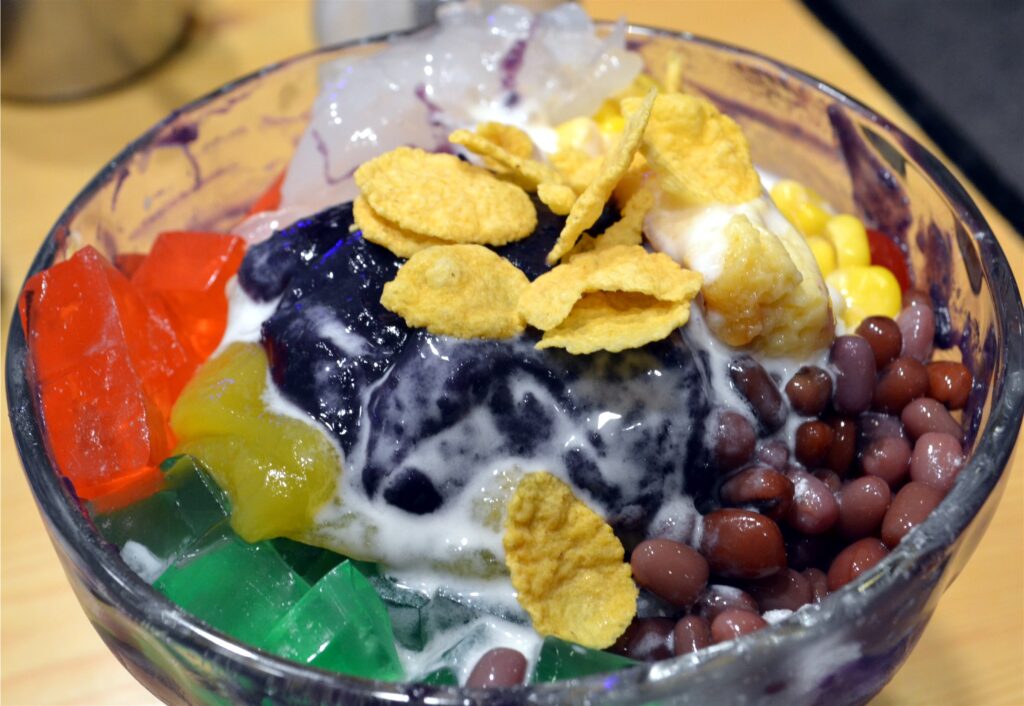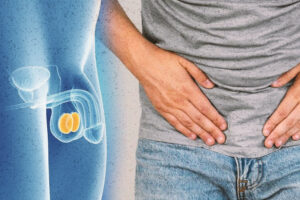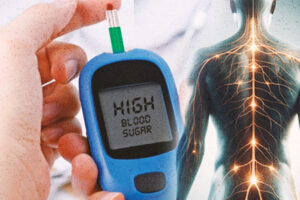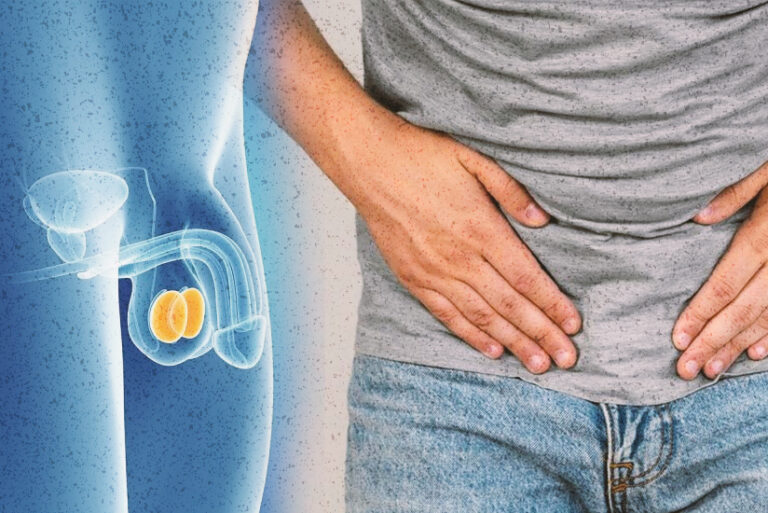Text and Photos by Henrylito D. Tacio
Filipinos love to eat foods that are too sweet. This is the reason why most of our dishes are heaped or covered with sugar – from biko to bukayo, from leche flan to halo-halo. A gathering is not complete without sweet pasta and sliced hotdogs; we’re referring to Filipino-style spaghetti.
Perhaps you may be wondering how many grams of sugar are there in those Filipino delicacies. A serving of three banana cues in one stick can contain as much as six grams or a teaspoon and a half of sugar, according to the website of FWD Life Insurance Public Company Limited.
That’s only for a starter. Two-medium sized puto may contain five grams or almost one and a half teaspoons of sugar. Two tablespoons of banana ketchup may contain up to three grams of sugar. A bowl of this famous Filipino “innovation” from a fastfood chain contains 19 grams – or almost five teaspoons of sugar.
Common guilty pleasure
Sugar is a common guilty pleasure of many. “Sugar brings happiness. Eating it once or twice a week in a desert, that’s what life is about. There is nothing wrong with it,” said Adriano Zumbo. “I love to eat – Kit Kats or cookies-and-cream ice cream. I need sugar like five times a day,” Kim Kardashian admitted.
“I consume too much sugar. It’s a problem, I need to stop,” Kevin Jonas pointed out. To which Alexander Pushkin stressed, “Ecstasy is a glass full of tea and a piece of sugar in the mouth.”
Some people couldn’t help it but they needed something sweet. That’s how sugar substitutes came into existence. They taste sweet but they don’t contain sugar. Some of them have fewer calories than sugar, and some have no calories at all.
Sugar substitutes
These sugar substitutes are divided into three categories: artificial sweeteners, sugar alcohols and novel sweeteners.
Examples of artificial sweeteners are advantame, aspartame, neotame, saccharin and sucralose. Sugar alcohols include erythritol, isomalt, lactitol, sorbitol, and xylitol. Novel sweeteners are derived from natural sources; examples are allulose, stevia, and tagatose.
But the World Health Organization (WHO) is against using these non-sugar sweeteners (NSS) as they are bad for your health. It listed the following NSS: acesulfame, aspartame, advantame, cyclamate, neotame, saccharin, sucralose, stevia, and other stevia derivatives.
All these NSS are not recommended, especially among those who want to lose weight. Available evidence suggests that “artificial sweeteners do not help control body mass or reduce the risk of weight-related illnesses.”
Dr. Francesca Branca, WHO Director for Nutrition and Food Safety, explained, “Replacing free sugars with NSS does not help with weight control in the long term. People need to consider other ways to reduce free sugars intake, such as consuming food with naturally occurring sugars like fruit, or unsweetened food and beverages.”
NSS, she pointed out, “are not essential dietary factors and have no nutritional value. People should reduce the sweetness of the diet altogether, starting early in life, to improve their health.”
Health problems
In the long run, using NSS may compromise your health. The “potential undesirable effects from long-term use” of NSS include an increased risk of type 2 diabetes and cardiovascular diseases.
Based on studies conducted, “there may be other dangerous consequences such as the increased risk of premature death among adults.”
The non-consumption of NSS is highly recommended to all people “except individuals with pre-existing diabetes and includes all synthetic and naturally occurring or modified non-nutritive sweeteners that are not classified as sugars found in manufactured foods and beverages, or sold on their own to be added to foods and beverages by consumers.”
The recommendation, however, does not apply to personal care and hygiene products containing NSS such as toothpaste, skin cream, and medications – or to low-calorie sugars and sugar alcohols (polyols), which are sugars or sugar derivatives containing calories, and are not considered NSS.
“White gold”
Perhaps not too many know that sugar used to be called “white gold.”
“Sugar was once a luxury ingredient reserved for special occasions,” wrote Tiffany O’Callaghan, an editor in the Opinion section at New Scientist. “But in recent years it has become a large and growing part of our diets.
“If you eat processed food of any kind, it probably contains added sugar,” she continued. “You can find it in sliced bread, breakfast cereals, salad dressings, soups, cooking sauces and many other staples. Low-fat products often contain a lot of added sugar.”
But recent studies showed sugar calories are deadly calories. Sugar does not only cause heart attacks, it also causes obesity, type 2 diabetes, cancer and dementia. In the United States, sugar is the leading cause of liver failure.
That’s not all. New researchers sync “with decades of data on how sugar causes insulin resistance, lower HDL (good) cholesterol, and dangerous small LDL (bad) cholesterol. It also triggers the inflammation we now know is at the root of heart disease,” wrote Dr. Mark Hyman in his book, The Blood Sugar Solution 10-Day Detox Diet.
War on sugar
As early as 1972, Dr. John Yudkin sounded the alarm that sugar was the greatest danger to our health in his book entitled, Pure, White and Deadly. Just like salt, eating too much sugar is doing us no good. In fact, sugar is now touted as public health enemy number one: as bad if not worse than fat, and the major driving force behind obesity, heart disease and type II diabetes.
Some researchers even contend that sugar is toxic or addictive.
It’s no wonder why health bodies around the globe are waging “a war on sugar.” The United Nations health agency wants people to cut sugar consumption radically. In the United States, doctors and scientists are pressing food companies to reduce sugar and be more open about how much they add.
In Asia, the Philippines is the first country to introduce a landmark tax measure which imposes a tax on all sweetened beverages, depending on the type of sweetener used.
“Sugar is sugar, so it’s best used in moderation no matter what form it takes,” pointed out American dietitian Andrea D’Ambrosio.
To consume or not to consume, that is the dilemma for some people. “If God hadn’t meant for us to eat sugar, he wouldn’t have invented dentists,” said Ralph Nader, an American activist and author.
But Luc Tappy, a physiologist at the University of Lausanne in Switzerland, disagrees: “You cannot live without essential fats. You cannot live without protein. It’s going to be difficult to have enough energy if you don’t have some carbohydrate. But without sugar, there is no problem. It’s an entirely dispensable food.” – ###



Sources:
https://www.health.harvard.edu/heart-health/the-sweet-danger-of-sugar
https://www.therecipe.com/sugar-the-history-of-the-worlds-white-gold/








